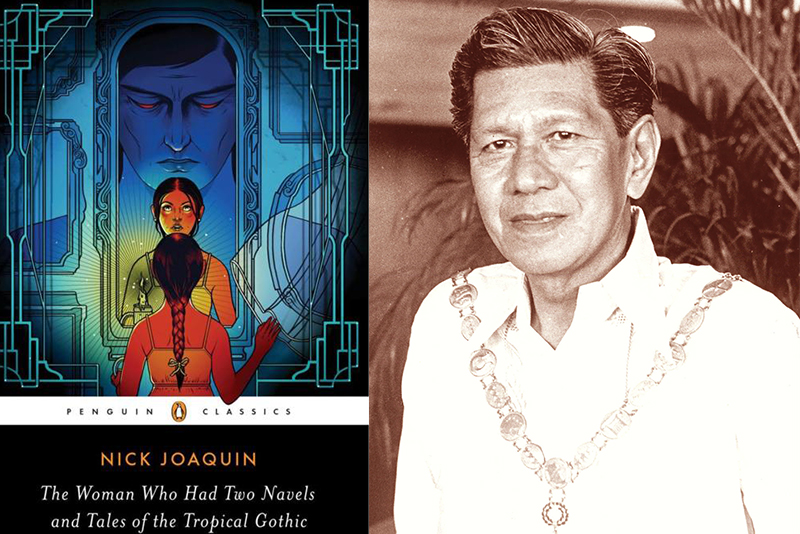The Summer Solstice By Nick Joaquin Pdf File
- 12 Comments!

“Summer Solstice” Analysis “Summer Solstice” is a short story that has received recognition both critical and praising. Written by Nick Joaquin, the story takes place in 1850s Philippines during the festival days of St. There is a pro-woman feel to the story, which has garnered a lot of debate and attention considering the setting is in a time where women must be submissive. In this analysis, learn about the setting, the themes and symbolism that this short and interesting story incarnates. Summary The Tatarin, or otherwise known as the Tadtarin, was a three day festival that celebrated a ritual of fertility. This was done only by women.
Many men frowned upon the extravagant dances and plays surrounding the ritual. “Summer Solstice” is set during the three days of the St. John’s festival.
Chihiro Nakao, Shingijutsu USA's founder, has developed a series of process improvement services that consist of Seminars and Workshops that leverage kaizen to help clients achieve a more productive and lean operating environment. Sherhoi yoshiki bacha baroi duhtar navisht. Domain 0.top 00.top 002.top 003.top 004.top 005.top 006.top 008.top 009.top 01.top 011.top 012.top 013.top 014.top 015.top 016.top 017.top 018.top 019.top 02.top. This image has been flagged as Not Safe For Work. Show me anyway (This warning can be disabled in your account) Flagged as NSFW. Oct 15, 2012 An in-depth look at: Lightsaber Forms- Shii-Cho STAR WARS Discussion. Find a Doctor. To speak with an appointment scheduler, call 1-800-533-UPMC between 7 a.m. Monday through Friday. Note: We can schedule appointments for many — but not all — UPMC doctors and locations at this number.
Download as DOC, PDF, TXT or read online from Scribd. Nick Joaquin’s “Summer Solstice” is one of the many intoxicating stories he's made. Answer (1 of 2): The Summer Solstice is a short story written by Nick Joaquin. The book tells the story of a ritual performed by women to call upon the gods to.
Lupeng, a Filipino woman who feels closed to her womanhood, is married to Paeng, who is no doubt loyal to her. They have three small boys and live a somewhat wealthy life as they have a carriage driver named Entoy and a maid and cook named Amada. Guido is a cousin of Paeng’s who comes back to the Philippines after studying in Europe.
The story starts when the family is enjoying the days of the St. John’s festival until Guido makes suggestive comments to Lupeng, and even bending down to kiss her feet. This makes her leave abruptly and have a discussion with her husband the coming night. Lupeng secretly found herself intrigued by the attention of Guido; she felt that he was correct in saying that women should be ravished and men should adore them. This causes her to participate in the last night of the festival, which is the Tatarin ritual. Paeng goes with her and tries to drag her back once the dancing begun, but she runs from him to the women.
He tries to take her back but the women in the crowds beat him out, leaving him helpless. As the two return home, Paeng says he must whip his wife because he loves her and feels that she needs to be put in her place. To this, she shouts and says she wants to be adored, not respected and orders him to kiss her feet.
Setting and Conflicts Setting – Since the story takes place in the 1850s, women were repressed and felt shut in. Lupeng may seem to be happy in her routine life, but she also feels angry. You can notice this when she states to the children “ Hush, hush I implore you! Now look: your father has a headache, and so have I. So be quiet this instant — or no one goes to Grandfather.” It indeed sounds like she feels as though she has a duty that she must carry on but she gets annoyed at her family because of her subdued state of womanhood. Although she tries act horrified when Guido tells of her woman should be adored rather than beneath their husbands, she contemplates and realizes she wants to be the leader of the pack.
External and Internal Conflicts – The stereotypes of masculinity and feminine traits run rampant in the story. Women are supposed to look after their husbands and children while the husbands work and wait for their supper. Not only is this seen in the story but in daily life as well, which makes the story shocking to readers since it is about women wanting to be free. Lupeng shatters the concept of the suppressed woman when she gains control of her husband, who kisses her feet at the end of story.